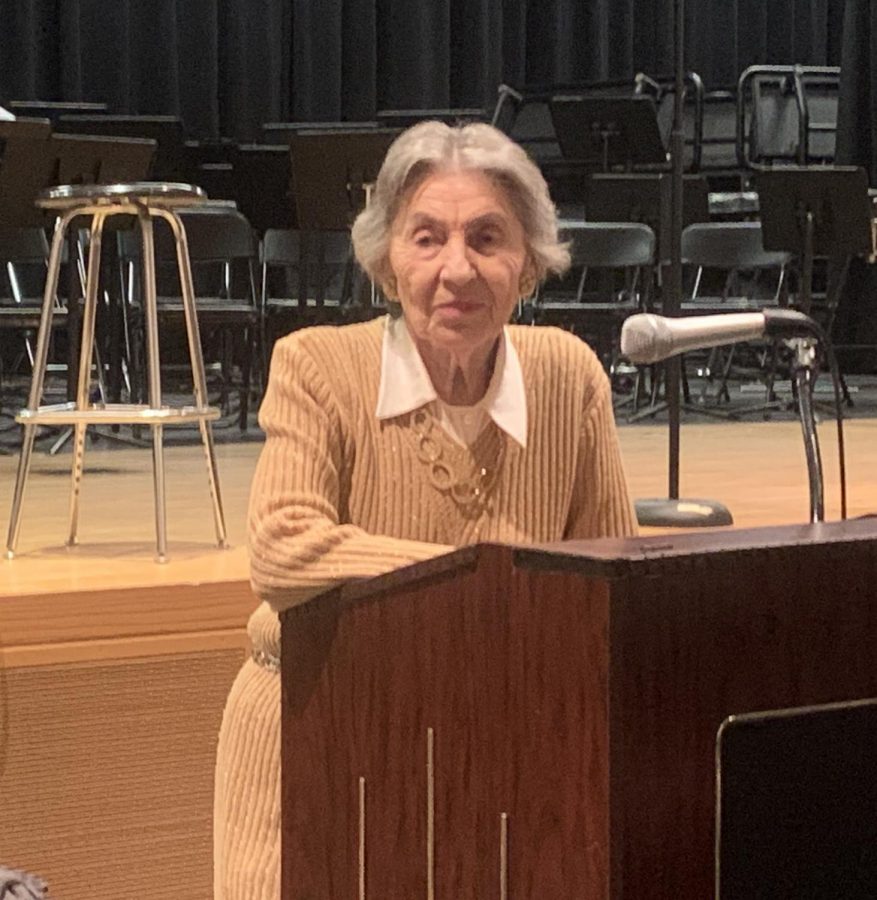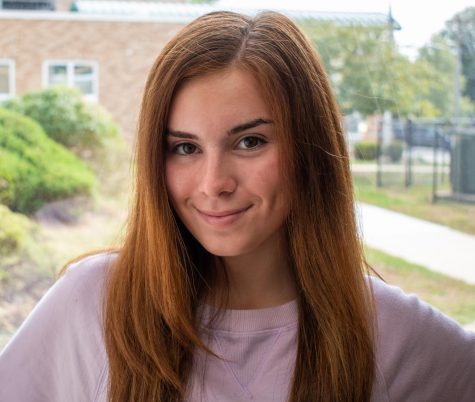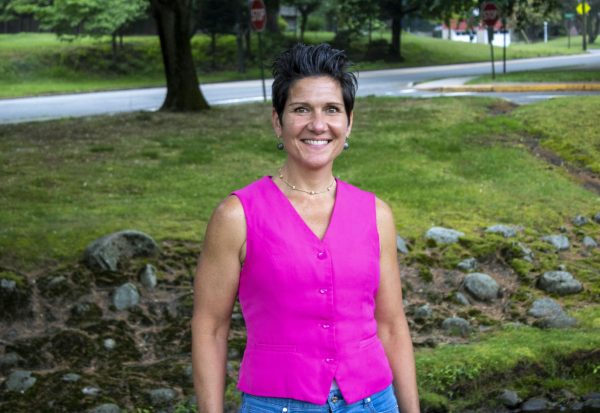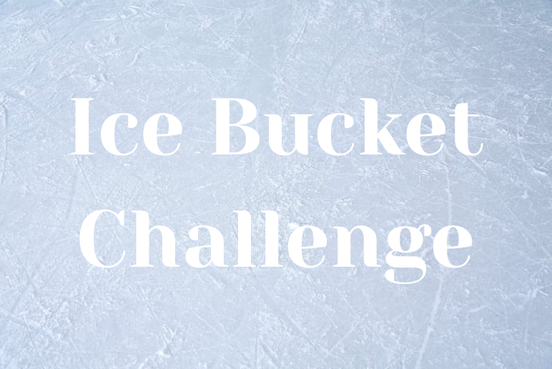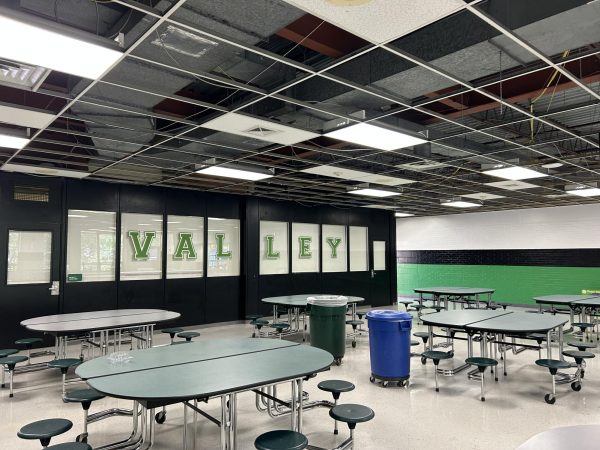A Voice of Courage
Holocaust survivor tells her story to PV students
Bella Miller spoke to Pascack Valley students in World History, Critical Analysis of History Through Film, and Literature of the Holocaust classes. She is a Holocaust survivor whose goal is to educate others on the past and spread kindness.
The auditorium was quiet and attentive on Tuesday, Dec. 11, when Pascack Valley hosted Bella Miller, who grew up in Poland and was a survivor of Auschwitz. Her children had went to Pascack Hills.
PV history teacher Marisa Mathias’ Honors World History and Critical Analysis of History Through Film classes attended, along with history teacher Pam Schwartz’s classes and Valerie Santo’s Literature of the Holocaust classes.
“We must tell her story in an effort against hate and create a more tolerant and inclusive community, ” Mathias said, “to make sure we never forget we must tell her story and others like it.”
Miller began her speech by talking about August 1944 when she stepped onto the grounds of Auschwitz at 7 years old. Her family was forced to split apart and she did not know that this would be the last time she would see her father and brother alive.
“It always broke my heart knowing that there was no way to say goodbye to my family,” Miller said.
Soon thereafter, her arm was tattooed and she would be known as a number for the remainder of her days at the death camp.
“You were not anymore a human being, believe me, that number will never leave my mind,” Miller said. “A24977 — that’s what I was.”
She and others had many responsibilities throughout the camp. If an individual did not meet the requirements, they would be beaten.
“One day, I remember I went in the attic upstairs and I saw the Nazis take children to the middle of the field and shoot them,” Miller said. “They used these children as an example.”
She realized that in order to survive, she had to do everything that they asked of her and try to blend in to the crowd.
“It is horrible that a human being can shoot children and kill people because of their religion — not to mention they have children of their own,” Miller said.
After nearly two years, Miller said that on Jan. 27, 1945, the Russians liberated Auschwitz and arrived with potatoes and bread. With her mother who had also survived, the American Jewish Joint Distribution Committee took them to a Jewish community in Nebraska and provided Miller with her first job working in the office of the Continental Grain Company.
From that point in her life, Miller decided that she did not want to “live with the Holocaust” but educate young people of the past.
“No matter what religion, color, nationality you are, you have to be kind to one another, ” Miller said.
Miller said that she has heard of the swastikas that were found in PV, PH, and around the community, and she feels that young people “do not understand what they are doing.”
“It is a shame how young people don’t know how hurtful it is when they draw that sign,” Miller said. “When I heard about this in the news, I thought it was so disappointing.”
As a community, she feels everyone should spread the power of positivity and kindness.
“There are good people and bad people and you can see how many bad people are in the world, but I believe there are many more good people,” Miller said. “I need to teach people that this should not happen, everyone is a human being and is entitled to kindness.”


